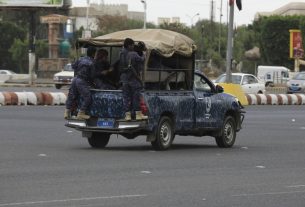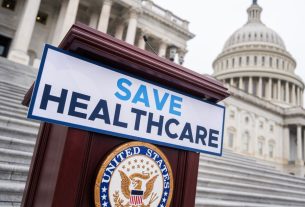In a significant move, Nigeria’s President has ordered the release of minors who were arrested during recent protests over the rising cost of living in the country. The decision follows growing public outcry and concerns from human rights groups about the treatment of young people involved in the demonstrations.
The protests, which erupted in major cities across Nigeria, were sparked by increasing economic hardship, with citizens voicing their frustrations over soaring prices for basic goods and services. As the cost of living has steadily risen in the wake of inflation and economic reforms, many Nigerians, especially in urban areas, have found it difficult to afford essentials like food, transportation, and healthcare.
Minors Caught in the Protests
Among those detained during the protests were minors, some as young as 14, who were reportedly arrested for participating in demonstrations or for allegedly being involved in acts of civil disobedience. Their arrests have drawn sharp criticism from various quarters, including advocacy groups that emphasize children’s rights and the importance of protecting young individuals from being caught up in politically sensitive situations.
Human rights organizations, such as Amnesty International and the Nigerian Human Rights Commission, have condemned the arrests of minors and called for their immediate release. They argue that the use of force against children in protest situations is a violation of international conventions and national laws designed to protect the rights of young people.
Economic Crisis Fuels Protests
The cost of living protests began after the Nigerian government announced measures aimed at addressing the country’s growing economic crisis, including fuel price hikes and cuts to government subsidies. These moves were implemented in an effort to stabilize the country’s finances, but they have exacerbated public anger as ordinary Nigerians are hit hardest by the rising prices.
With inflation rates climbing, food prices have skyrocketed, and many people are struggling to make ends meet. Unemployment rates remain high, especially among young people, leading to widespread dissatisfaction with the current administration’s economic policies.
The protests, which have been largely driven by youth-led activism, reflect the growing frustration with Nigeria’s leadership as it grapples with persistent economic challenges. In cities like Lagos, Abuja, and Kano, protesters have marched in the streets calling for immediate relief and solutions to the country’s economic struggles.
Presidential Response and Public Backlash
In response to the public outcry over the arrests of minors, President [Insert Name] issued an order for the immediate release of all juveniles detained during the protests, directing that they not face charges. The president’s office released a statement acknowledging the sensitive nature of the arrests and expressing a commitment to ensuring that young people are not unjustly penalized for participating in peaceful protests.
While the move has been hailed by some as a step toward de-escalating tensions, it has also sparked further debate. Critics argue that the release of minors is insufficient if broader issues of economic inequality and government repression are not addressed. Several prominent civil society leaders have called for a more comprehensive response to the rising cost of living, urging the government to adopt policies that directly address the economic struggles facing ordinary Nigerians.
Human Rights and Political Implications
The arrest and subsequent release of minors raises significant questions about the role of law enforcement in handling protests, especially when young people are involved. Experts warn that heavy-handed responses to demonstrations can fuel resentment and undermine public trust in the government. Nigeria has faced increasing criticism in recent years for its approach to handling dissent, with human rights groups accusing the government of suppressing free speech and cracking down on peaceful demonstrations.
By ordering the release of the minors, the president may be attempting to address some of these concerns, particularly as international observers have closely watched the treatment of protesters in Nigeria. However, for many Nigerians, the arrest of young people highlights deeper issues of economic hardship and social discontent that cannot be easily resolved through symbolic gestures alone.
The Path Forward
As the protests continue and public dissatisfaction with the government’s economic policies grows, the Nigerian administration faces growing pressure to find solutions that will alleviate the suffering of ordinary citizens. The release of the minors may have calmed immediate tensions, but it is unlikely to be the final chapter in this story. Nigerians will be watching closely to see if the government takes further steps to address the root causes of the protests, particularly the rising cost of living that has pushed so many people into poverty.
The government’s next moves will likely determine whether public trust can be restored and whether the ongoing protests will lead to meaningful change.
References:
- BBC News: Nigeria’s Rising Cost of Living Sparks Protests
- Amnesty International: Human Rights Concerns Over Arrest of Minors in Nigeria
- The Guardian Nigeria: Nigeria’s Government Faces Backlash Over Arrest of Minors in Protests


